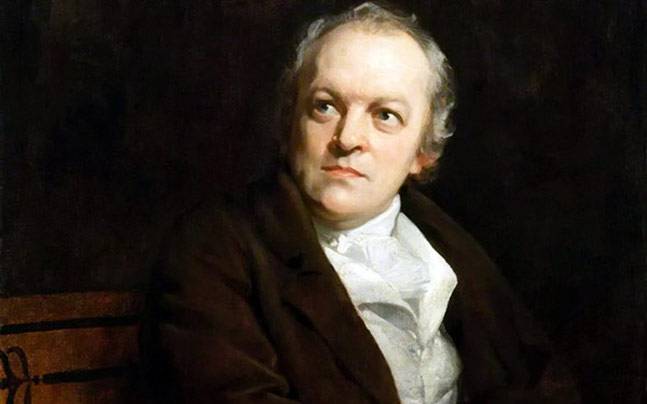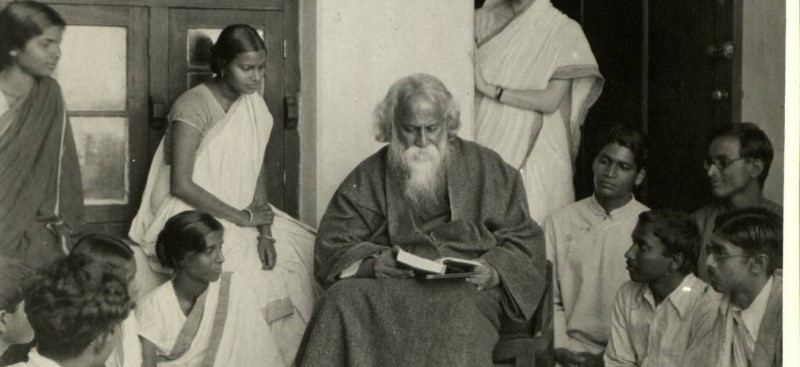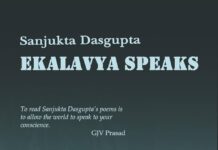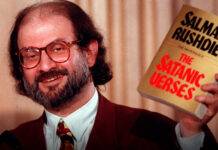To see a World in a Grain of
Sand,
And a Heaven in a Wild Flower,
Hold Infinity in the palm of your
Hand,
And Eternity in an hour.
– William Blake
Is it the time of poetry? The cynics might argue that poetry has lost its meaning because this is the time filled with the pandemic-induced despair, the smell of death and the all-pervading despair and meaninglessness. Furthermore, it is possible to argue that amidst this harsh reality that has made everything upside down, it is not easy to invoke a poet, play with symbols and metaphors, and sing in tune with, say, John Keats:
A thing of beauty is a joy forever:
Its loveliness increases; it will never
Pass into nothingness; but still will keep
A bower quiet for us, and a sleep
Full of sweet dreams, and health, and quiet breathing.
Yet, as I wish to state, poetry can never lose its meaning because it is our life-energy, it is our creative insight, and it is our ability to see, feel and experience deeply, and pass through the curved trajectory of life with grace and prayers.

‘Song of Myself’
Well, there is death; there is pain; there is what Sigmund Freud would have regarded as the triumph of the ‘Thanatos’ over the ‘Eros’. But then, even now it is not altogether impossible for you to feel that you should celebrate yourself; it is not impossible to say: I am satisfied—I see, dance, laugh, sing. And this celebration is not selfishness because, as Walt Whitman said it so beautifully:
I celebrate myself, and sing myself,
And what I assume you shall assume,
For every atom belonging to me as good
belongs to you.
Not solely that. In this celebration there is profound gratitude.
My tongue, every atom of my blood, formed
from this soil, this air,
Born here of parents born here from parents
the same, and their parents the same
…
Hoping to cease not till death.
What is this Song of Myself that Whitman wrote in the much-talked-about Leaves of Grass? True, we live amid brutality and violence, sickness and death, and ugliness and despair. But then, the Self the poet wanted us to celebrate transcends this cycle of pain and misery.
The sickness of one of my folks or of myself, or
ill-doing or loss or lack of money, or
depressions or exaltations,
Battles, the horrors of fratricidal war, the fever
Of doubtful news, the fitful events;
These come to me days and nights and go from me again,
But they are not the Me myself.
Indeed, at this moment of distancing and stigma, exclusion and untouchability, loneliness and psychic wound, it is only a poet like Whitman who could come, whisper into our ears, and inspires us to realize our hidden potential.
And I know that the hand of God is the
promise of my own,
And I know that the spirit of God is the
brother of my own,
And that all the men ever born are also my
brothers, and the women my sisters and lovers.
Yes, to celebrate life is to celebrate this rhythmic connectedness. This is love. This is compassion. And this conquers the psychology of fear because one begins to see oneself in the abundance of nature, or in the sniff of green leaves and dry leaves, and of the shore and dark-colored sea-rocks, and of hay in the ban.
The light of thy music illumines the world

Amid death and destruction, and nihilism and despair it is easy to lose a sense of gratitude, and thereby negate the very rhythm of life. Yet, a deep moment of contemplation makes us understand the significance of yet another poetic vision: the way Tagore articulated it-
At the immortal touch of thy hands my little heart loses its limits in joy and gives birth to utterance ineffable.
The infinite gifts come to me only on these very small hands of mine. Ages pass, and still thou pourest, and still there is room to fill.
This is like building a rhythmic bridge between the finite and the infinite. Only then, as Blake too said, one holds infinity in the palm of one’s hand. A tree whispers; a bird sings; a mountain reveals. Life becomes a celebration because, as Tagore would have said, the light of thy music illumines the world. This celebration is a song of humility, or a moment of surrender. It is soft, tender and non-possessive. To quote from yet another poem from Gitanjali:
My poet’s vanity dies in shame before thy sight. O master poet. I have sat down at thy feet. Only let me make my life simple and straight, like a flute of reed for thee to fill with music.
True, this quest doesn’t end. There are hurdles and obstacles. And quite often, we realize that we have not yet experienced the ultimate bliss. With pain and misery, we often find ourselves broken and crippled. There is a sense of incompleteness; but then, the longing remains.
The song that I came to sing remains unsung to this day.
I have spent my days in stringing and in unstringing my instrument.
The time has not come true, the words have not been rightly set;
only there is the agony of wishing in my heart.
And possibly this constant quest or this endless prayer gives a new meaning to the celebration of life. It is not social Darwinism; it is not the cult of narcissism; it is not the demonic ‘will to power’. Instead, it is for the finest evolution of human consciousness. And at this moment when we are obsessed with mere biological survival, masks and sanitizers take us to solitary cells, and emptiness surrounds our existence, it is great to be awakened by the poet’s sublime prayer:
This is my prayer to thee, my lord—strike, strike at the root of penury in my heart.
Give me the strength lightly to bear my joys and sorrows.
Give me the strength to make my love fruitful in service.
Give me the strength never to disown the poor or bend my knees before insolent might.
Give me the strength to raise my mind high above daily trifles.
And give me the strength to surrender my strength to thy will and love.
Even though for Tagore, ‘the delights of sight and hearing and touch’ are important, he knew that death would eventually knock at his door. No, the celebration of life is not separated from the music of death. True, at this moment of the pandemic, death has lost its grace, meaning and dignity amid the abstraction of statistics. However, to live intensely is to die meaningfully. And Tagore made us familiar with one of the finest articulations of the art of dying.
O thou last fulfillment of life, Death, my death, come and whisper to me!
Day after day have I kept watch for thee; for thee have I borne the joys and pangs of life.
All that I am, that I have, that I hope and all my love have ever flowed towards thee in depth of secrecy. One final glance from thine eyes and my life will be ever thine own.
The flowers have woven and the garland is ready for the bridegroom. After the wedding the bride shall leave her home and meet her lord alone in the solitude of night.
Avijit Pathak is Professor of Sociology at JNU.







